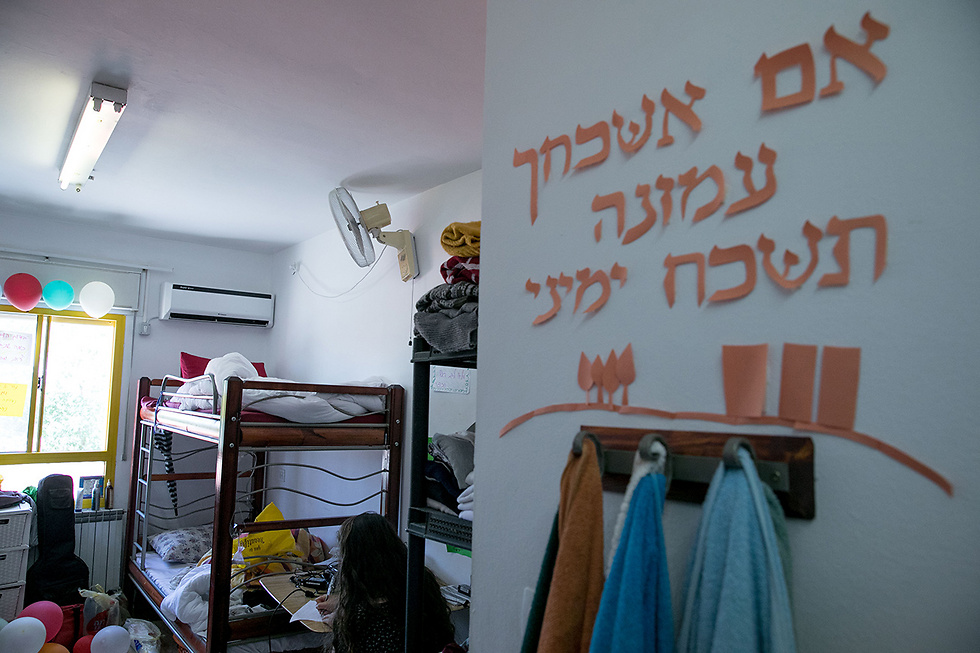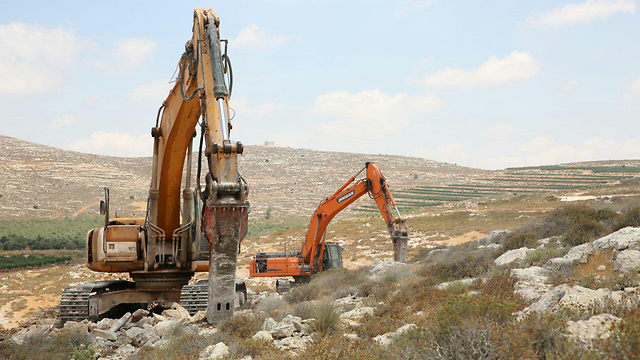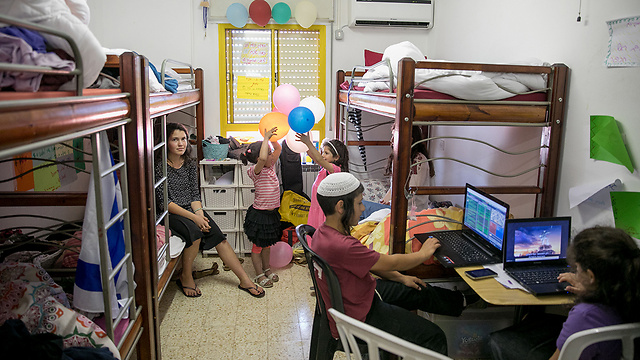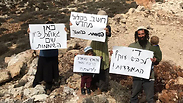
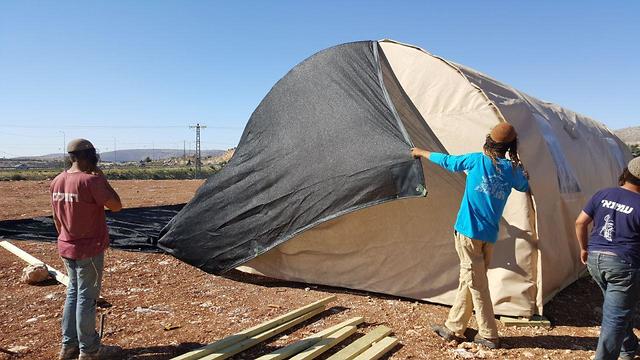
Amona evacuees decry government neglect
A year after Amona evacuation, dozens of families still live in difficult conditions in temporary housing; despite government's promise to resettle them in new a settlement, work there keeps stalling as left-wing NGOs petition High Court against new settlement; residents threaten to ascend to new community by Passover whether work is completed or not.
A year has passed since the evacuation of Amona and the former residents are still waiting for resettlement. The government promised to build a replacement settlement, Amichai, on nearby public land, but construction is only in its initial stages.
Evacuee families are currently living in temporary housing, while some are still at the guest house in the nearby settlement of Ofra where they went, or were sent, following the evacuation.
The disgruntled families are now threatening that come Passover, they will ascend to Amichai regardless of whether it is ready or not and live in tents if necessary.
Exactly one year ago, IDF and Israel Police units surrounded the hilltop upon which Amona was situated and evacuated all of its 40 families over a period of two days.
The state had no choice. The High Court ruled that the illegal outpost must be uprooted and the government duly followed the law. But the images of the evacuation were heart wrenching as women and children were dragged crying from their homes by the police—despite government efforts to carry it out quietly and without drama.
Many prominent ministers and government officials showed up to show support for the residents and participate in protests against the biggest forced evacuation since the 2005 disengagement from Gaza.
Amona residents voted and after an initial rejection, approved an agreement with the state whereby the state would build 42 homes and 10 community structures on nearby land belonging to absentee Arab owners.
The Attorney General gave his initial approval to that plan, but the residents' representative said that should the High Court void that plan, the government should be required to build the evacuees a new settlement on land chosen by the evacuees themselves.
The court did indeed void the first option and the families proceeded to demand that the government build them an alternative settlement.
Although the Prime Minister's Office was at first astounded by the residents' demands, upon realizing that the evacuees had no intention of yielding, they approved the building of a new settlement to replace Amona.
Shortly after the evacuation, residents chose a plot of land near the settlement of Shilo, but it took two months for the government to approve the site. Then, work stopped due to a lack of funds and only after the Interior Ministry took on the project was work able to continue.
However, from the time residents chose the plot of land, three petitions to halt the works were submitted to the High Court by NGOs. Two were already rejected by Supreme Court Chief Justice Esther Hayut.
The third petition, pertaining to 22 of the 60 plots of land, is awaiting a decision by Justice Neal Hendel. In order for basic infrastructure construction to resume, the matter needs to be resolved first.
Residents now claim that the court is stalling with regards to a decision on the matter, as three weeks have already passed without any updates.
Meanwhile, the families—averaging six children between them—languish in temporary housings and attempt to maintain some semblance of normalcy. Many of them are at a guest house in nearby Ofra and say they will only leave when the new settlement is completed.
Families staying at the Ofra guest house, however, said that conditions there have become too difficult to stay any longer, both physically and emotionally. Therefore, they intend to ascend to Amichai by this coming Passover, with or without government approval, and live in tents if the settlement is not yet ready.
"We have no more energy to remain here," a resident said. "We have not received even one shekel of compensation and we cannot yet begin to recuperate (from losing our homes). We have no choice… If they come to evacuate us from there then our fight will be like that of a wounded animal. We have nothing to lose anymore."Some 40 tents were purchased with donated funds and it seems that if work at Amichai is not completed in the coming months, things will once again heat up this spring.
On the positive side, 10 children were born to evacuee families over the last year, including a set of twins. A celebrity has also sprung from among them: Yehoyada Nizri is a contestant on the TV show Master Chef.
Residents believe that the majority of the population opposed the destruction of Amona and say that Leftist organizations are the primary reason for their unfortunate plight. They can only hope that the High Court rejects all the petitions against the erection of Amichai as soon as possible.















